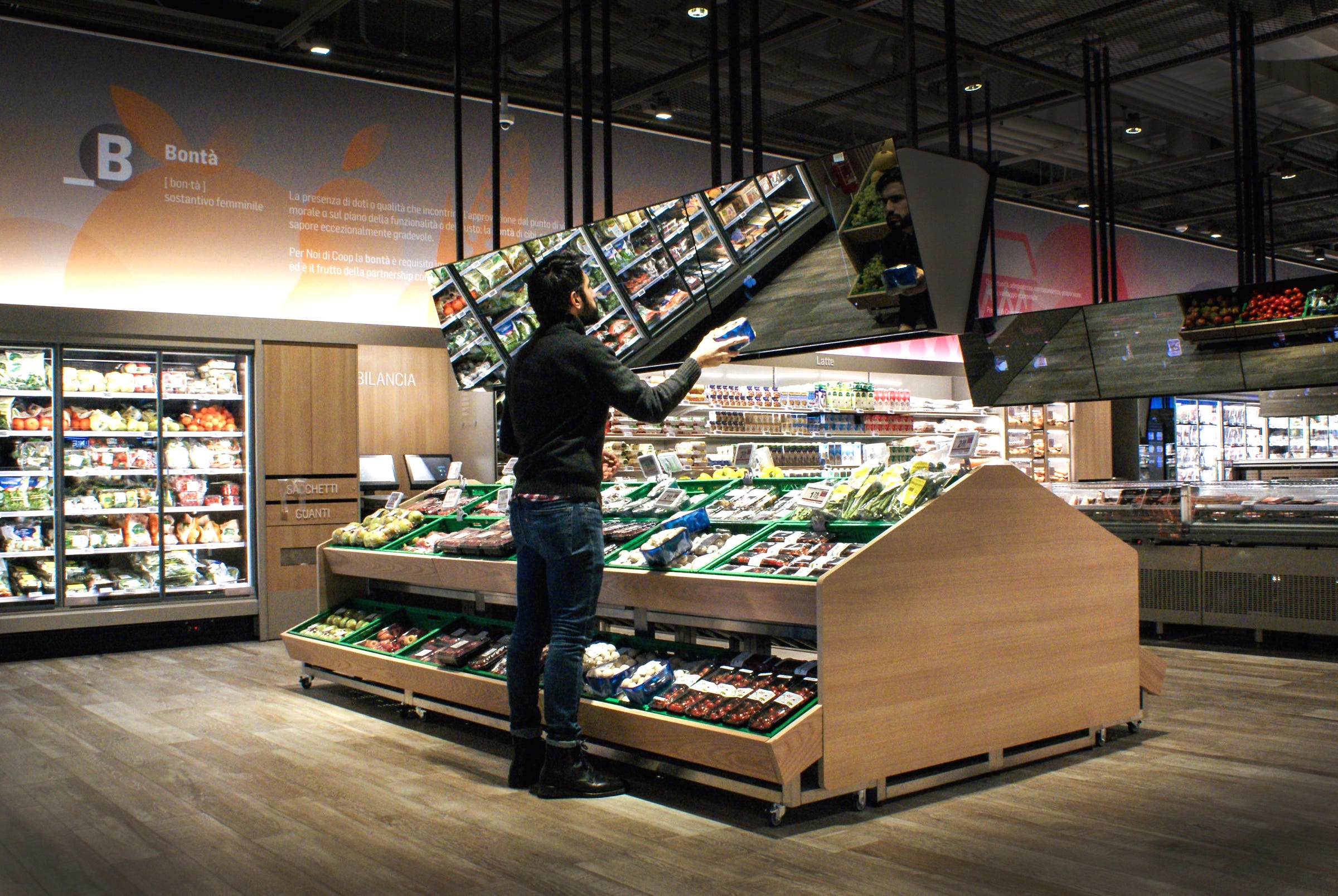Introduction:
In the rapidly evolving landscape of grocery shopping, technological advancements are reshaping the way consumers plan, shop, and manage their grocery lists. One of the most promising innovations on the horizon is the integration of artificial intelligence (AI) into grocery shopping apps and platforms, enabling the creation of “smart lists.” These intelligent lists leverage AI algorithms to analyze shopping habits, dietary preferences, and inventory levels to provide personalized recommendations and streamline the shopping experience. In this article, we’ll explore the future trends in AI-enhanced grocery shopping, with a focus on the emergence of smart lists and their potential impact on consumers in the United Kingdom.
The Evolution of Grocery Shopping
Traditional vs. Digital Shopping:
Traditional grocery shopping involves visiting physical stores, manually selecting products, and checking out at the register, while digital shopping encompasses online ordering, home delivery, and click-and-collect services.
Rise of Grocery Delivery Apps:
The proliferation of grocery delivery apps and platforms has transformed the way consumers access and purchase groceries, offering convenience, flexibility, and a wide selection of products.
Challenges of Grocery Planning:
Planning grocery lists can be time-consuming and prone to oversight, leading to inefficient shopping trips, forgotten items, and food waste.
The Role of AI in Grocery Shopping
Personalized Recommendations:
AI algorithms analyze consumer data, including past purchases, dietary preferences, and browsing history, to generate personalized product recommendations and recipe suggestions.
Inventory Management:
AI-powered grocery apps can track inventory levels, expiration dates, and usage patterns to help consumers optimize pantry management and reduce food waste.
Predictive Analytics:
By leveraging predictive analytics, AI algorithms anticipate consumers’ needs and preferences, suggesting relevant products and promotions based on contextual factors such as time of day, weather, and upcoming events.
Introducing Smart Lists
Definition and Functionality:
Smart lists are dynamic grocery lists that utilize AI technology to automatically generate and update shopping lists based on individual preferences, habits, and household needs.
Real-Time Updates:
Smart lists continuously sync with inventory data, meal plans, and shopping history to reflect changes in availability, consumption, and preferences in real time.
Integration with Voice Assistants:
Smart lists can be integrated with voice-enabled assistants such as Amazon Alexa or Google Assistant, allowing users to add items to their lists hands-free using voice commands.
Benefits of Smart Lists
Time-Saving Convenience:
Smart lists streamline the grocery planning process, saving consumers time and effort by automatically generating lists based on their preferences and habits.
Reduced Food Waste:
By accurately tracking inventory levels and expiration dates, smart lists help consumers avoid overbuying and minimize food waste, leading to cost savings and environmental benefits.
Enhanced Personalization:
Smart lists provide personalized recommendations and suggestions tailored to individual preferences, dietary restrictions, and lifestyle factors, enhancing the overall shopping experience.
Improved Efficiency:
With real-time updates and synchronization across devices, smart lists ensure that consumers have access to the most up-to-date shopping information wherever they go, facilitating efficient and organized shopping trips.
Future Trends and Innovations
AI-Powered Meal Planning:
Integration with meal planning tools and recipe databases will enable smart lists to suggest ingredients and meal ideas based on users’ preferences and dietary goals.
Integration with Loyalty Programs:
Smart lists may integrate with grocery store loyalty programs, allowing consumers to access personalized discounts, offers, and promotions directly from their shopping lists.
Smart Fridge Integration:
Integration with smart refrigerators and pantry systems will enable smart lists to automatically update based on real-time inventory levels, ensuring that users always have the ingredients they need on hand.
Consumer Adoption and Considerations
Privacy and Data Security:
Consumers may have concerns about privacy and data security when sharing personal information and shopping habits with AI-powered grocery apps, highlighting the importance of transparent data policies and consent mechanisms.
b. User-Friendly Interfaces: User-friendly interfaces and intuitive design are essential for promoting adoption and usability among consumers, especially those who may be less familiar with technology.
c. Customization and Control: Providing users with control over their smart lists, including the ability to customize settings, preferences, and privacy options, will be critical for fostering trust and engagement.
Conclusion: Embracing the Future of AI-Enhanced Grocery Shopping
Smart lists represent a significant advancement in AI-enhanced grocery shopping, offering consumers in the United Kingdom a more convenient, personalized, and efficient way to plan and manage their shopping trips. By harnessing the power of AI algorithms, smart lists empower users to make informed decisions, reduce food waste, and optimize their shopping experiences. As technology continues to evolve and consumer expectations shift, the adoption of smart lists is poised to become increasingly prevalent, reshaping the way consumers plan, shop, and consume groceries in the digital age. By embracing the future of AI-enhanced grocery shopping, consumers can enjoy a more seamless and satisfying shopping experience while contributing to sustainability and efficiency in the food supply chain.

